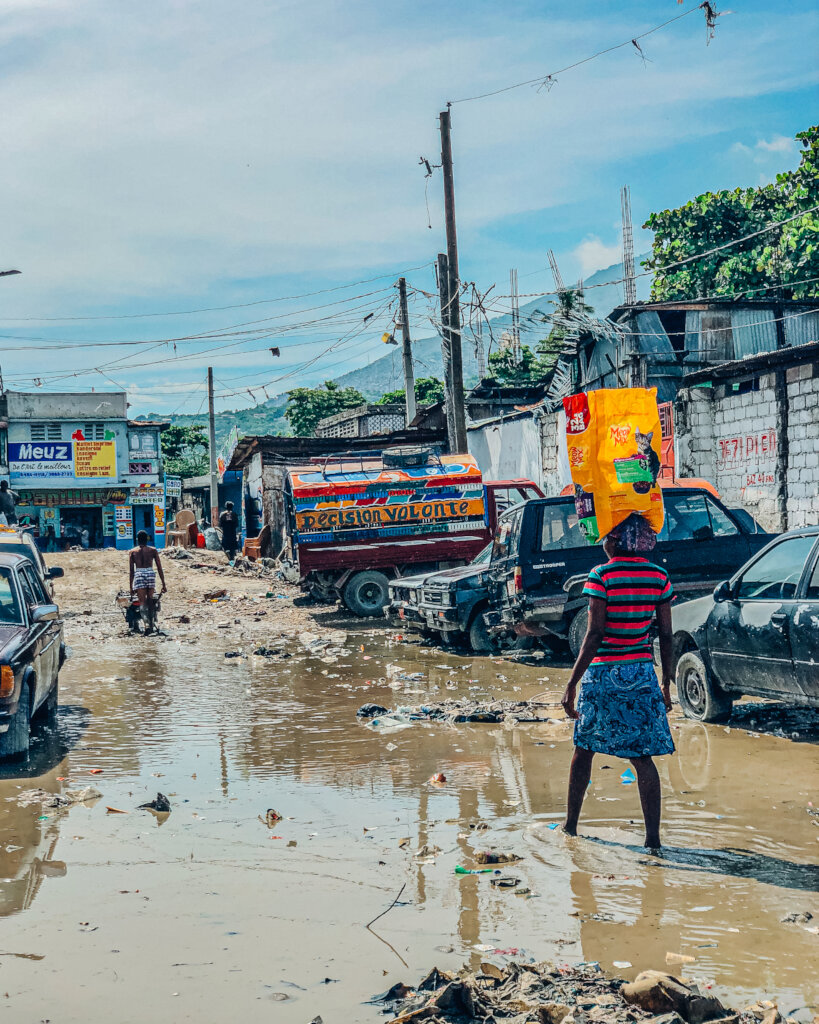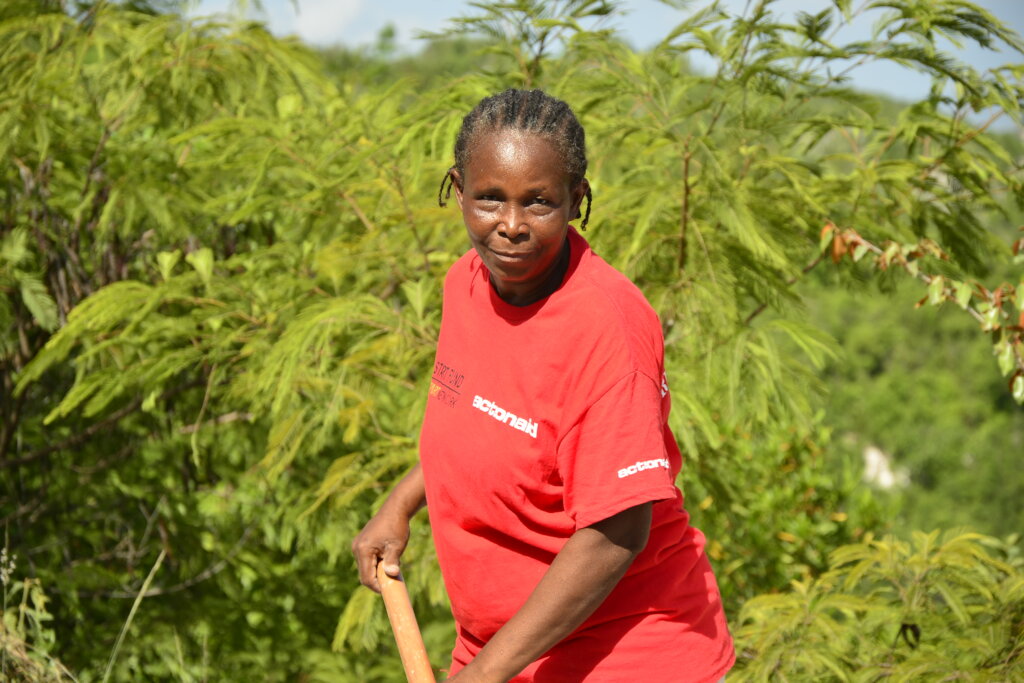By Katherine Coe | Individual Giving Officer
Thank you for supporting this project. I am writing today to share some updates about our work following Haiti’s 2021 earthquake. We appreciate you taking your time to learn and act in response to this crisis.
The devastating earthquake experienced in Haiti was compounded with other humanitarian issues, making this crisis even more complex. Since 2021, there has been a 15.6% increase in the number of people in Haiti who need humanitarian assistance.
On June 3, 2023 heavy rains triggered floods in several regions of the country notably in the West, Southeast and Grand’Anse departments. The heavy rains lasted about 10 hours which provoked major floods and landslides in major cities such in the south of Port-au-Prince, Leogane and Belle-Anse. Overall, affected departments are west, Nippes, South-East, Grand’Anse, North-West; AAH has LRPs in the South-East and West and a regional office in Jérémie - Grand’Anse. The partial assessment reports 15 deaths, 8 missing and 7,475 families affected, 1,219 houses flooded and approximately 13,390 people displaced in the departments of West, Nippes, South-East, North-West and Center. In the West department, 5,510 households are affected, and more than 2,539 households are displaced.
Luciane, a 43 year old mother, tells her story about bringing up six children alone in the Lafionnele area of Corail, Haiti. Luciane and her neighbords in Corail live mainly from fishing and farming, which they practice in the mountains on steep slopes.
Luciana's house was so badly damaged by the earthquake in August 2021 in southern Haiti that she and her children had to move out. Since then, she has been living in a rented two-room apartment downtown.
Luciane owns a small farm, growing cassava, peas and yams, to feed herself and her family. However, the tropical storm that hit Haiti earlier this past June completely destroyed Luciane's garden, in which she had invested part of her savings. According to the latest reports from the United Nations, no less than 4.9 million Haitians find themselves in a situation of food insecurity, much like Luciane's. And quite often, mothers like Luciane have to reduce the amount of food that they're eating to give priority to their children. She says: "I used to have a cassava garden. The winds destroyed everything. I have nothing left. There are days when you don't have enough to eat. If you find some, you're happy; if you don't, you stay and there's nothing you can do."
Luciane is one of the women working in the "cash for work" program set up by ActionAid this past June, in the aftermath of the tropical storm, which destroyed infrastructure, incited flooding, and ravaged crops and agricultural farms. Luciane shares her plans for the cash she earns through the ActionAid program: "I won't be able to keep my 'cash for work' for myself. I'm going to use it to buy food and start preparing for school."
By Kaelyn DiCocco | Development Intern
By Katherine Coe | Individual Giving Officer
Project reports on GlobalGiving are posted directly to globalgiving.org by Project Leaders as they are completed, generally every 3-4 months. To protect the integrity of these documents, GlobalGiving does not alter them; therefore you may find some language or formatting issues.
If you donate to this project or have donated to this project, you can receive an email when this project posts a report. You can also subscribe for reports without donating.
Support this important cause by creating a personalized fundraising page.
Start a Fundraiser
